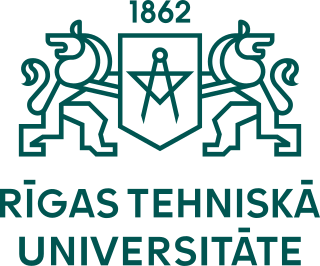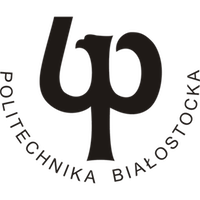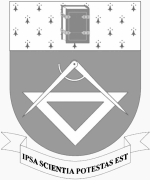
Riga Technical University (RTU) is the oldest technical university in the Baltic countries established on October 14, 1862. It is located in Riga, Latvia and was previously known as 'Riga Polytechnical Institute' and 'Riga Polytechnicum'.

Bialystok University of Technology is the largest technical university in northeast Poland.
An institute of technology is an institution of tertiary education that specializes in engineering, technology, applied science, and natural sciences.

The University of Madeira is a Portuguese public university, created in 1988 in Funchal, Madeira. The university offers first, second cycle and Doctorate academic degrees in a wide range of fields, in accordance with the Bologna process. It is now under the CMU/Portugal agreement with Carnegie Mellon University, having master programme in Computer Engineering, Human Computer Interaction and Entertainment Technology. Students admitted will be eligible for scholarships and have internship opportunity during the summer break. In addition, Madeira Interactive Technologies Institute, founded in January 2010, is devoted to building international partnership with other educational institutes and industry.

"Dunarea de Jos" University of Galati is a public university located in Galați, Romania. It was founded in 1974.

Kaunas University of Technology is a public research university located in Kaunas, Lithuania. Established in 1922, KTU has been one of Lithuania's top science education centers. According to rankings conducted in 2021, KTU was the second-best university in Lithuania. The primary language spoken in courses is Lithuanian, although there are courses that are taught jointly in Lithuanian and English or solely in English.

The Karlsruhe University of Applied Sciences is a university of applied sciences in Karlsruhe. It is the largest university of applied sciences in the state of Baden-Württemberg, offering both academic and professional higher education study programmes in engineering sciences, natural sciences, and business. Given the concentration of research centers and universities in and around Karlsruhe, the university of technology offers a wide range of courses on campus respected in the industry and academia.
Engineering education is the activity of teaching knowledge and principles to the professional practice of engineering. It includes an initial education, and any advanced education and specializations that follow. Engineering education is typically accompanied by additional postgraduate examinations and supervised training as the requirements for a professional engineering license. The length of education, and training to qualify as a basic professional engineer, is typically 5 years, with 15–20 years for an engineer who takes responsibility for major projects.

The Cyprus University of Technology (CUT) is a university established in 2004. Its first intake of students took place in the academic year 2007–08. The establishment of CUT is an attempt to fill in gaps that still exist within Cyprus' higher education by offering degrees in undergraduate and post graduate levels that are not offered by the University of Cyprus or by other higher education institutions.

The Gheorghe Asachi Technical University is a public university located in Iași, Iași County, Western Moldavia, Romania. Classified by the Ministry of Education as an advanced research and education university, it has the oldest tradition in Romania in engineering education. Gheorghe Asachi Technical University is a member of the Romanian Alliance of Technical Universities (ARUT).

The Faculty of Technical Sciences is a higher education institution located in Novi Sad, an independent part of the University of Novi Sad. It was founded on 18 May 1960 and today it is the largest faculty in Serbia by number of students and one of the largest in the region. As of 2020–21 academic year, it has a total of 15,742 students.

Transilvania University of Brașov is a higher education and research institution in Brașov, Romania which comprises 18 faculties, with a number of over 20,000 students and over 690 teaching staff members. Currently, Transilvania University of Brașov is the largest university in the centre of the country, a university that offers programmes in fields such as: mechanical engineering, industrial engineering, computers, construction, forestry, wood engineering, product design, nutrition and tourism, computer science, mathematics, economics, medicine, pedagogy, music, literature and linguistics, law, sociology and social work, psychology. There are 100 undergraduate programmes in the University: 83 full-time study programmes, 17 part-time study and distance learning programmes, 83 master's degree study programmes and 21 doctoral fields.

Oles Honchar Dnipro National University is a public higher education institution located in Dnipro, Ukraine. It was founded in 1918. The first four faculties were History and Linguistics, Law, Medicine, and Physics and Mathematics.

The Technological University of Pereira is a national public research university in Pereira, Risaralda, Colombia. The university is located in the southeast of the city.
Ternopil Ivan Pului National Technical University is a university in Ternopil, Ukraine.
Ho Technical University, formerly Ho Polytechnic, is a public tertiary institution in the Volta Region of Ghana. The Polytechnic started in 1968 as a technical institute with the primary goal of providing pre-technical education. By 1972, the Institute made tremendous progress and upgraded its courses. In 1986, the institution was upgraded into a Polytechnic. However, it was not until 1993 that it got full backing of the law to become a fully-fledged tertiary institution, charged with the responsibility of training students to the Higher National Diploma (HND) and Degree Levels. The Polytechnic Law was replaced in September 2007 by the Polytechnics Act. Ho Technical University is one of the premier national tertiary institutions in the Volta Region. The Motto of the University is Adanu Nazu kekeli which means Adanu become light.
The Kumasi Technical University, formerly known as Kumasi Polytechnic, is a public tertiary institution in the Ashanti Region of Ghana.

Kyiv National University of Technologies and Design (KNUTD) (Ukrainian: Київський національний університет технологій та дизайну is a university in Kyiv, Ukraine. Areas of knowledge taught at KNUTD: Education/Pedagogy, Culture and art, Humanities, Social and behavioral sciences, Management and administration, Legal Sciences, Natural Sciences, Information Technology, Mechanical engineering, Electrical engineering, Automation and instrumentation, Chemical and bioengineering, Production and Technology, Healthcare, Service sector, Public administration and administration.

The Accra Technical University was established in 1949 as a Technical School in Ghana and commissioned in 1957 as Accra Technical Institute and converted into a Technical University by the Parliament of Ghana in 2013.

Pskov State University is a public university in the Pskov Region of Russia. It is one of the 33 flagship universities in Russia. Pskov SU was established in 2010 by several other educational institutions in the region.














